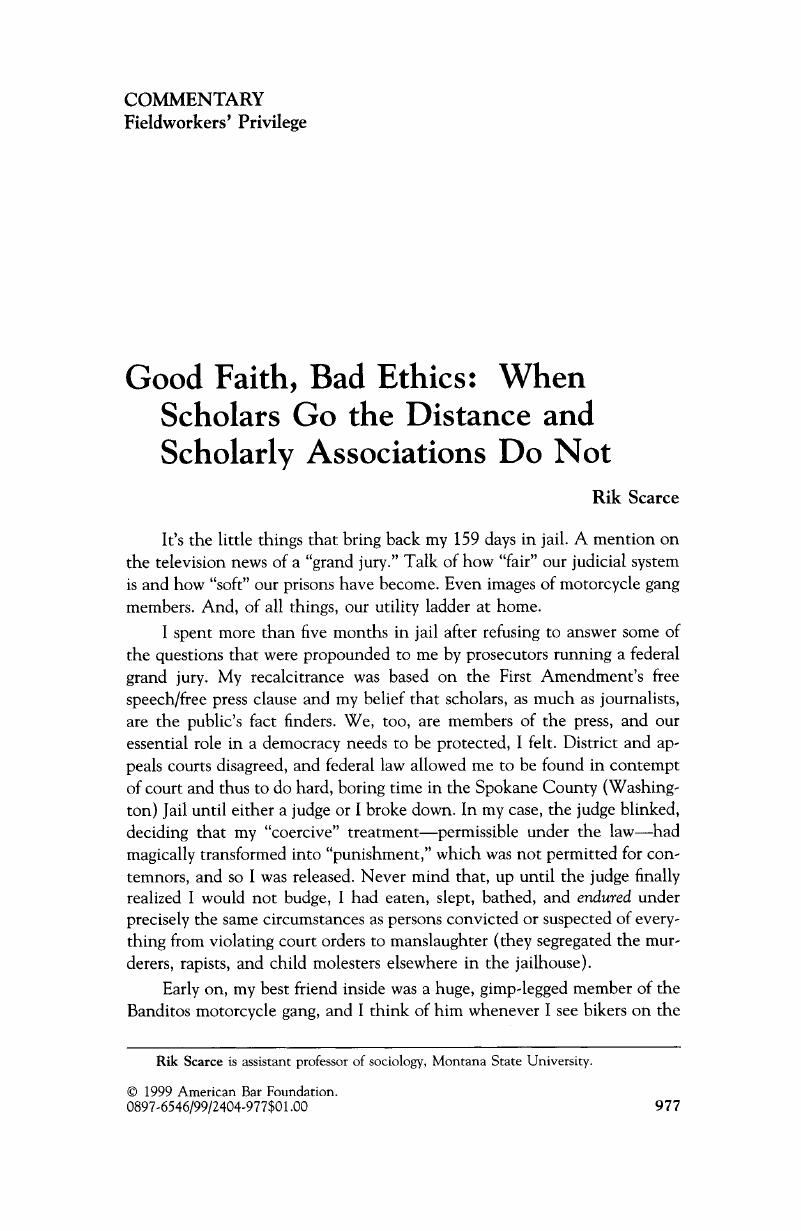No CrossRef data available.
Article contents
Good Faith, Bad Ethics: When Scholars Go the Distance and Scholarly Associations Do Not
Published online by Cambridge University Press: 27 December 2018
Abstract
An abstract is not available for this content so a preview has been provided. Please use the Get access link above for information on how to access this content.

- Type
- Commentary
- Information
- Copyright
- Copyright © American Bar Foundation, 1999
References
American Sociological Association (ASA).
1984. Code of Ethics. Washington, D.C.: American Sociological Association.Google Scholar
American Sociological Association (ASA).
1997. Code of Ethics. Washington, D.C.: American Sociological Association. Available online at http://www.asanet.Org/ecoderev.html Principle E: Social Responsibility.Google Scholar
Berger, Peter L.
1963. Invitation to Sociology: A Humanistic Perspective. New York: Anchor.Google Scholar
Scarce, Rik. 1990. Eco-Warriors: Understanding the Radical Ervironmental Movement, Chicago: Noble Press.Google Scholar
Scarce, Rik. 1994. (No) Trial (But) Tribulations: When Courts and Ethnography Conflict. Journal of Contemporary Ethnography
23(2):123–49.Google Scholar
Scarce, Rik. 1995. Scholarly Ethics and Courtroom Antics. American Sociologist
26(1):87–112.Google Scholar
Scarce, Rik. 2000. Fishy Business: Salmon, Biology, and the Social Construction of Nature, Philadelphia: Tempie University Press.Google Scholar
U.S. Senate.
1999. Thomas Jefferson Researcher's Privilege Act of 1999. 106th Cong., 1st sess., S 1437.Google Scholar




